Remembering Baby Salma
Sadly, Salma died from her injuries sustained from a poacher’s snare on early on Friday, February 7, 2020. We are very saddened by this senseless loss. In sharing the news about Salma’s passing, Rudi Petra writes:
“Forgive us for failing to return you to the mother who gave birth to you, Salma. We understand your longing for your mother & best friends. We know the task of saving you is only a small part of the burden we carry. We will never give up. We will continue to fight and protect your relatives, families that are still alive and your home. We believe that one day we can save them from extinction, because only by protecting the place you play we can survive for life. Rest in peace Salma.”
We share the story of her rescue to honor those who work tirelessly to save her.
Surviving a Poacher's Snare
June 16th, 2019
by Rudi Petra, Leuser Conservation Forum (FKL)
In the afternoon of June 16th, 2019, a local community member notified Leuser Conservation Forum (FKL) staff that a baby elephant had been caught by a snare on her leg at a village in rural part of Aceh Timur. At that moment, our staff contacted a veterinarian to save this baby elephant. The next day, the mission to save the elephant began.
Elephants are known to be very smart, and instinctively find a way to save injured members of their group. Working in the Leuser Ecocystem, the FKL rangers get calls about elephants bringing their injured young to an area nearby a community village – maybe hoping someone will help rescue them. Several rescue missions the FKL rangers have conducted with Aceh’s Natural Resources Conservation Agency have been very close to settlements.
A recovery team set out, following the footsteps of the baby elephant, including FKL’s Elephant Protection Team, the veterinarian, Aceh Natural Resources Conservation Agency staff, Forest Management Unit Regional 3, and local community members.
After two days of tracking the baby elephant through the forest, parts of her footsteps were lost….The team became more and more hopeless, but remained determined to continue until they found and treated the baby.
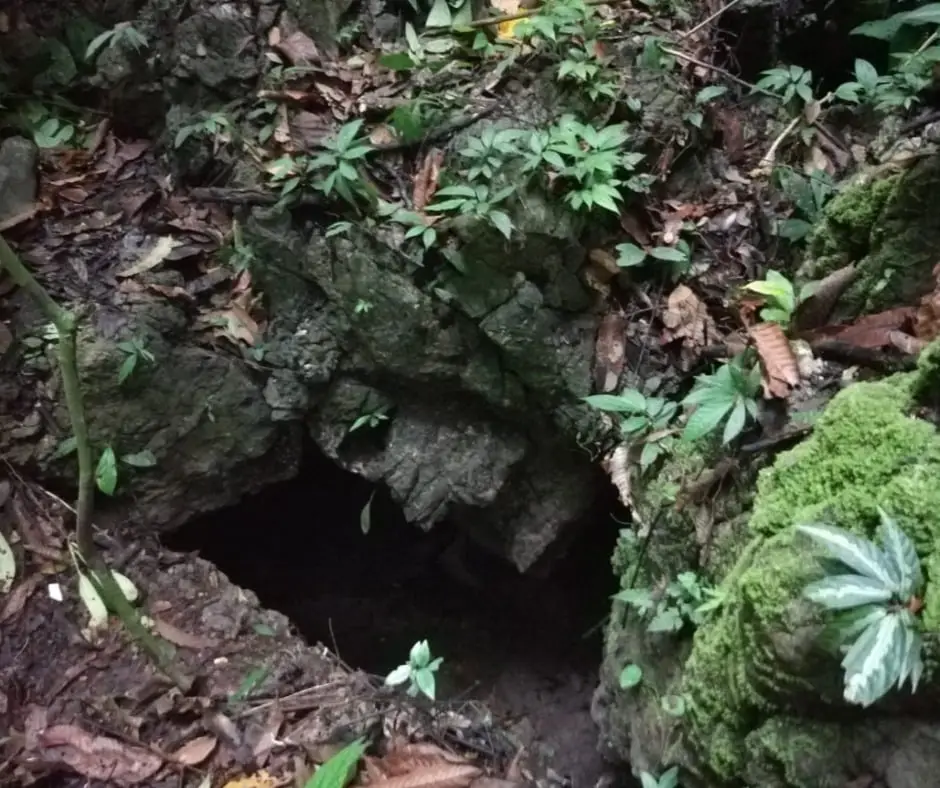
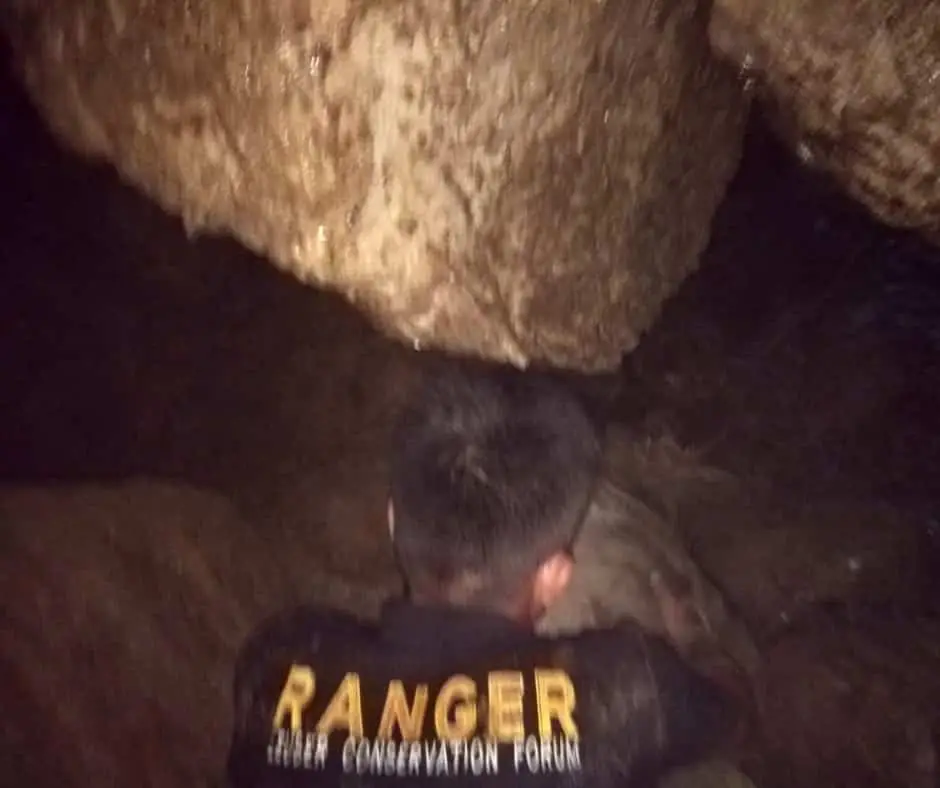
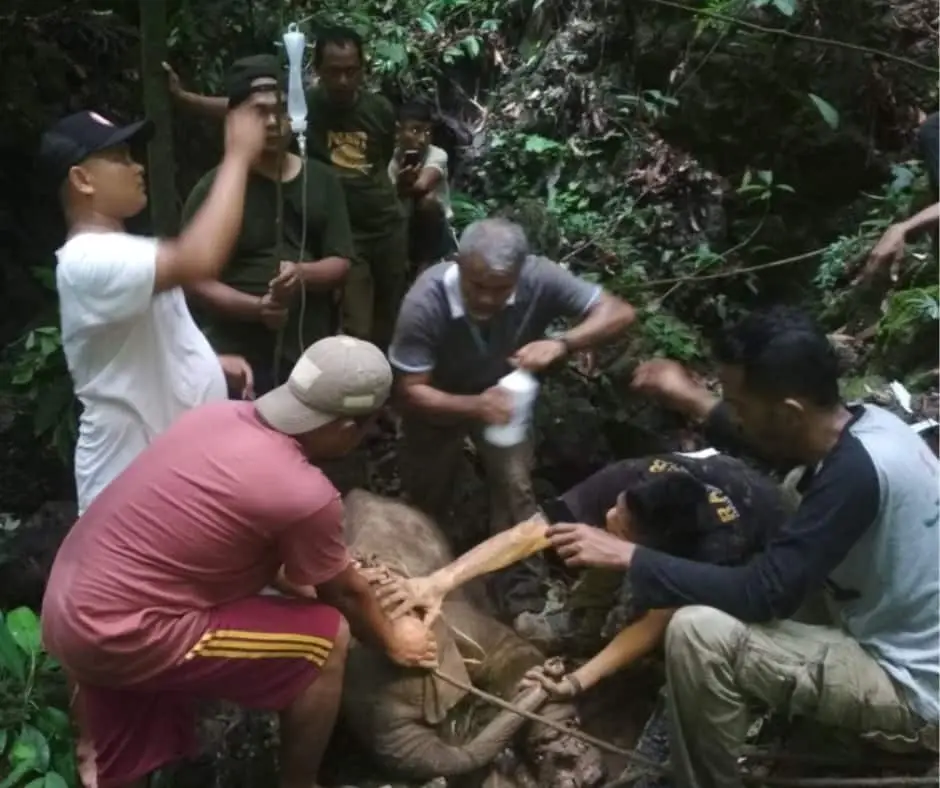
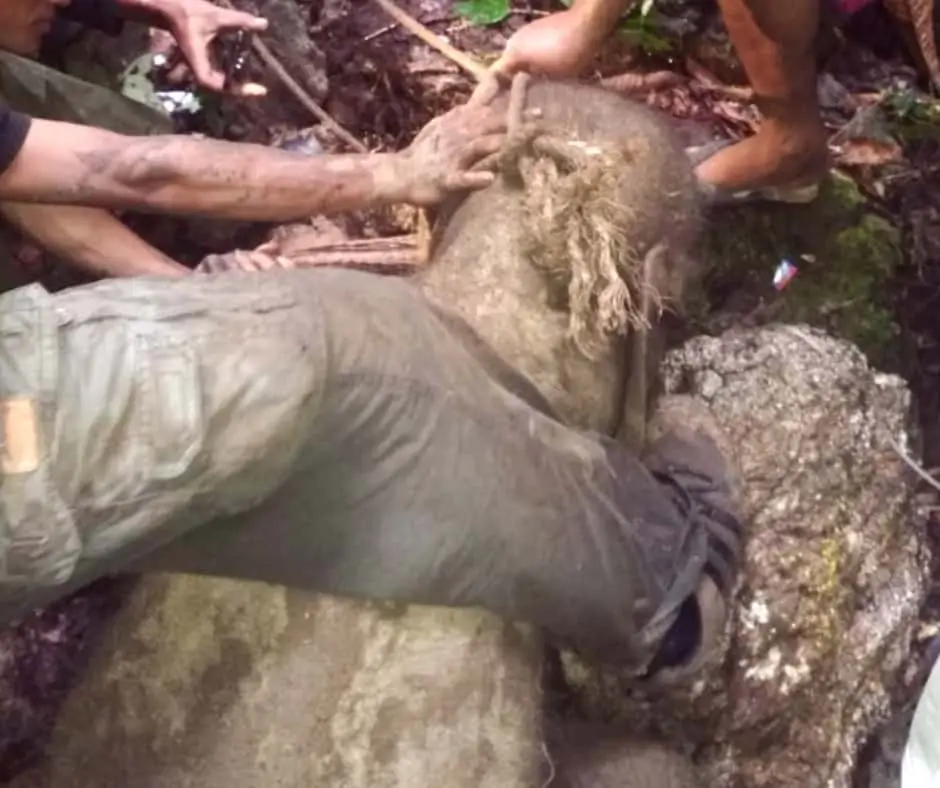
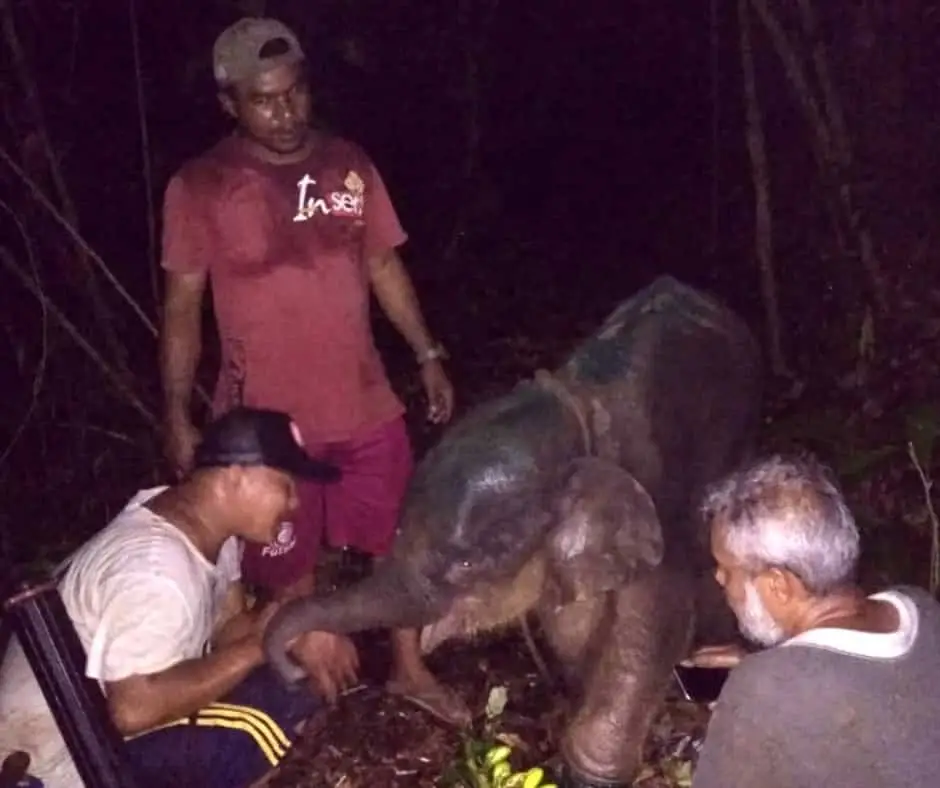
The Rescue
The team continued to search and walked until they came across a hole approximately 2 meters deep. It was inside this hole, a soft sound was heard.
The team tried to find the source of the sound, and that is where they found the weak baby elephant. Lying there distraught, maybe the elephant is no longer able to walk and wants to end her life there until her final breath.
Two members of the Elephant Patrol Team braved themselves to enter the cave to save the elephant, but her rescue was far from certain. Despite being very weak, the injured baby elephant still showed her wild nature.
With two rangers pushing below in the darkness of the cave, and another dozen using ropes from above, the team tried their very best to pull Salma from the hole.
The Frontlines of conservation
FKL’s team of 148 trained rangers patrol 13,500 square kilometers in Sumatra’s Leuser Ecosystem. In 2018, they found 843 snares set by poachers targeting protected wildlife.
In 2019, FKL’s rangers rescued 3 elephants and 1 sun bear caught in snares. They also recovered 2 hornbills and 1 orangutan from villagers intending to sell them on the black market.
Sumatran elephants, rhinos, tigers, pangolins, helmeted hornbills, and orangutans are all listed as Critically Endangered on the IUCN Red List. Their populations are declining worldwide due to poaching and habitat loss. As they disappear from other forests, the survivors face even more pressures. International poachers move into the last places where supply can be found for body parts for the Chinese black market.
Poaching is rising at an alarming rate in the last of Sumatra’s forests, with an influx of hunters from Central Sumatra and other Asian countries targeting elephants, rhinos, tigers, pangolins, hornbills, and wild birds.
With insatiable demand on the black market for tusks, horns, feathers, skins, and other body parts used in traditional medicine, cultural rituals, and decorative arts, species are moving closer to extinction.
The Leuser Ecosystem offers one of the last places where there is hope to rescue them from the brink of extinction. Connecting the two large remaining protected areas will help enormously. Restoring forests hinders access deeper into untouched areas. Returning failed farms and plantations to forest is vital to a sustainable future.
But time is critical in the race against the relentless demand. As the forests continue to recede, access becomes easier for poachers. Already driven to extinction in other parts of Indonesia, these vulnerable species, the last of their kind on earth, are now in the cross hairs.
In 2018, Saving Nature launched a 3-year initiative to build a wildlife corridor in Leuser to combat the loss of habitat, reestablish elephant migration routes, and build a buffer against poachers.
Our long-term goal is to connect a 5,500-ha area recently designated by the government as an elephant conservation area with nearly 300,000 ha of protected forest.
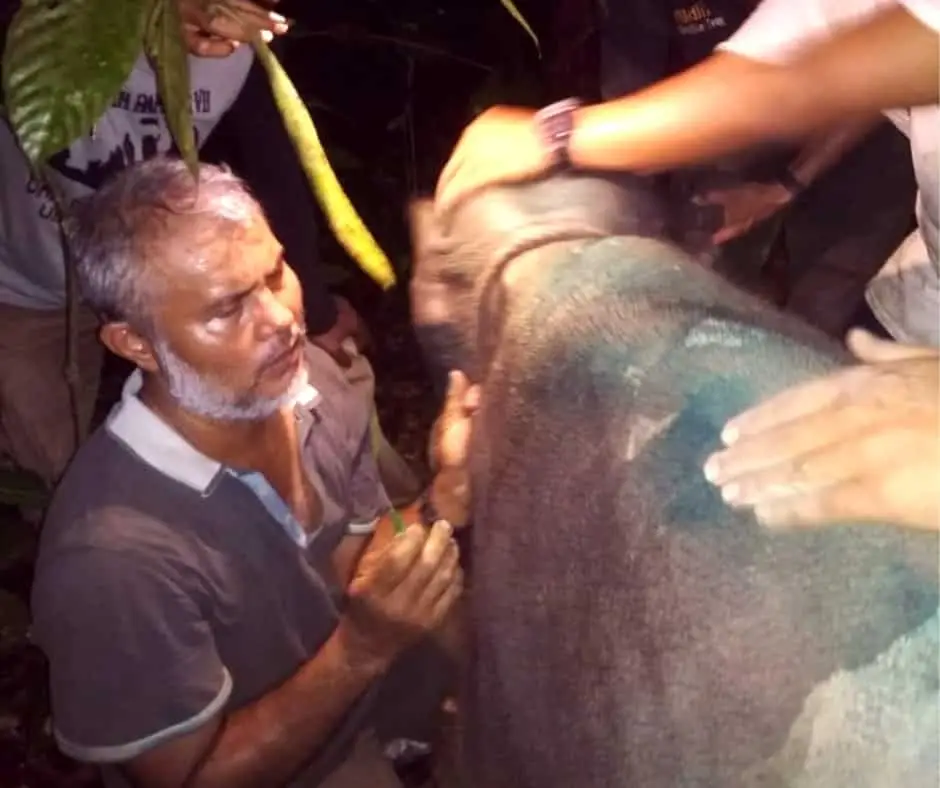
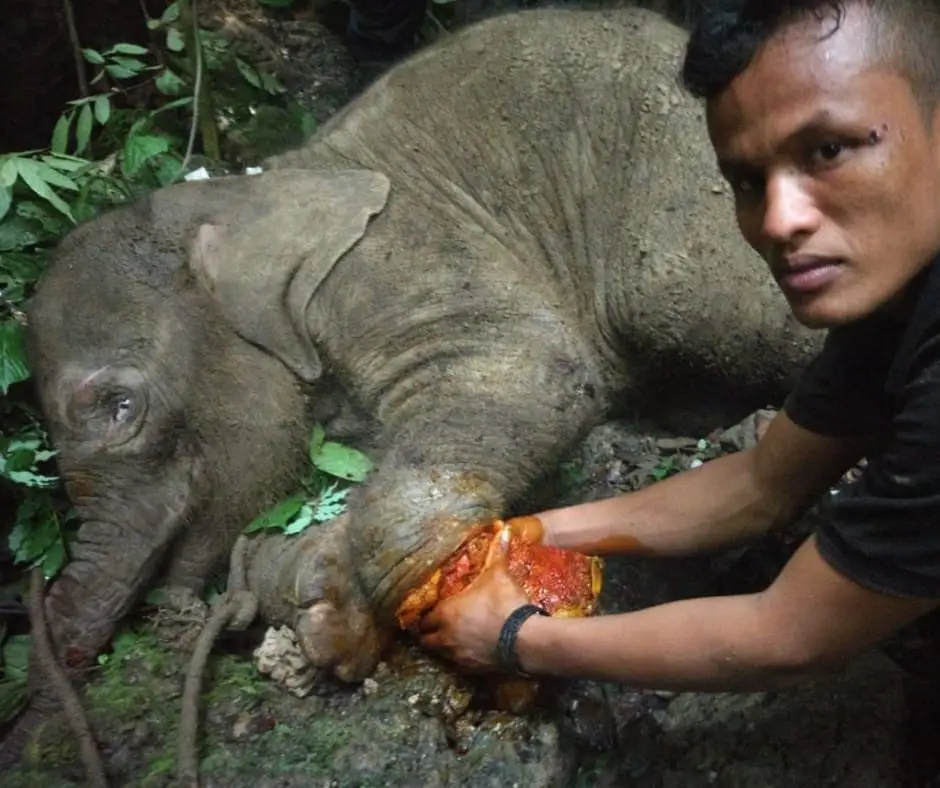
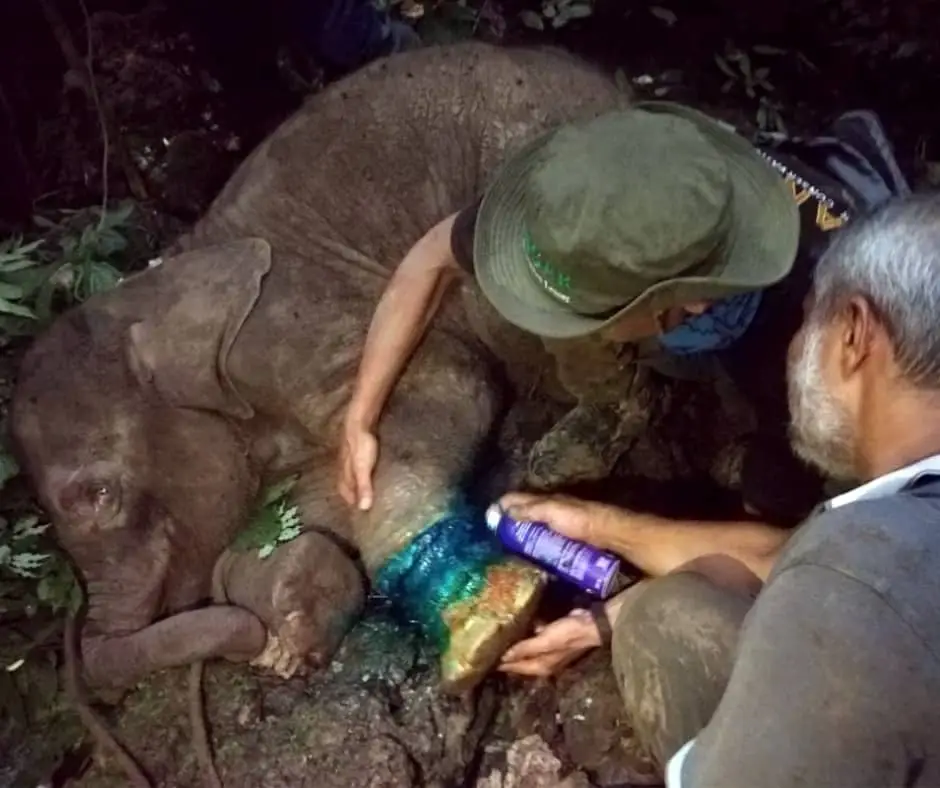
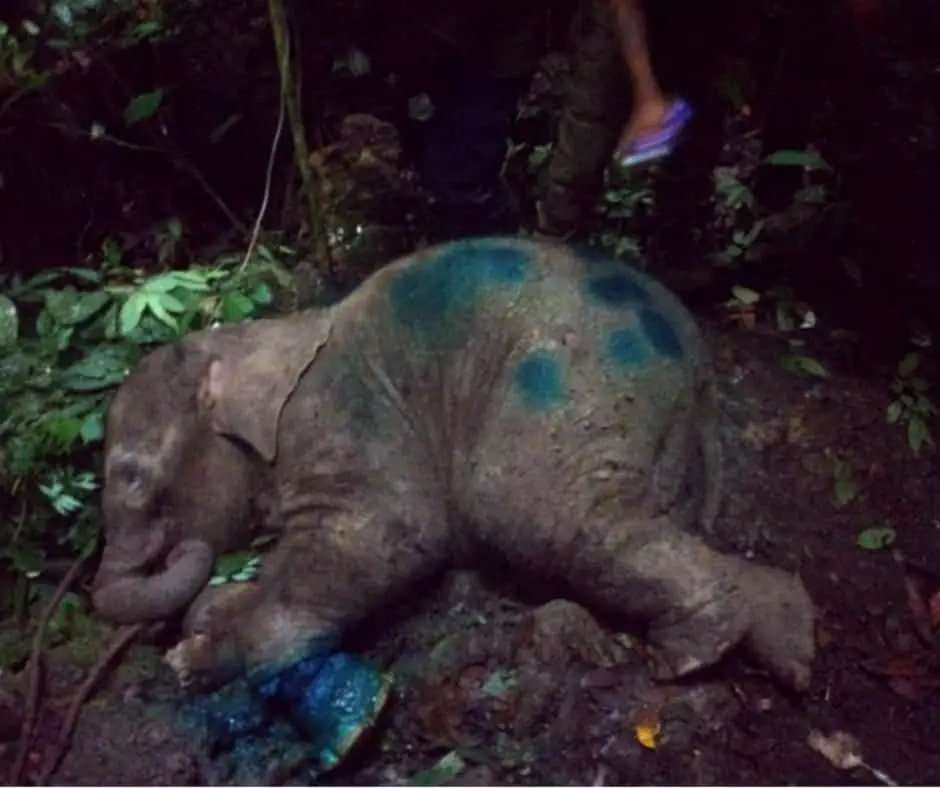
Field Triage
Finally, at 5 o’clock in the afternoon, the elephant was out of the dark cave. The veterinarian immediately injected anesthesia into the elephant, and worked to remove the snare, clean, and treat the wound.
The snare resulted in a very deep wound that came close to injuring the bones. Infection also could have killed this amazing creature.
We were very pessimistic looking at the condition of this baby elephant, but whatever the risk facing ahead, this elephant must be saved.
The Evacuation
To evacuate this little elephant was no easy feat. The location was very far from the nearest settlement. The team used a boat to go along the river to the closest settlement before it is brought on to a car.
In the middle of the night, we received help from the local community who provided the boat that is then used to bring the elephant. The elephant’s long journey began. To reach the closest settlement took 2 hours, then a 7-hour drive on land.
It was not over yet. ..
The elephant took another boat ride to reach the elephant camp, Conservation Research Unit (CRU) Serbajadi, in East Aceh. She will spend her time recovering here until she is ready to be released back in the wild to meet her family.
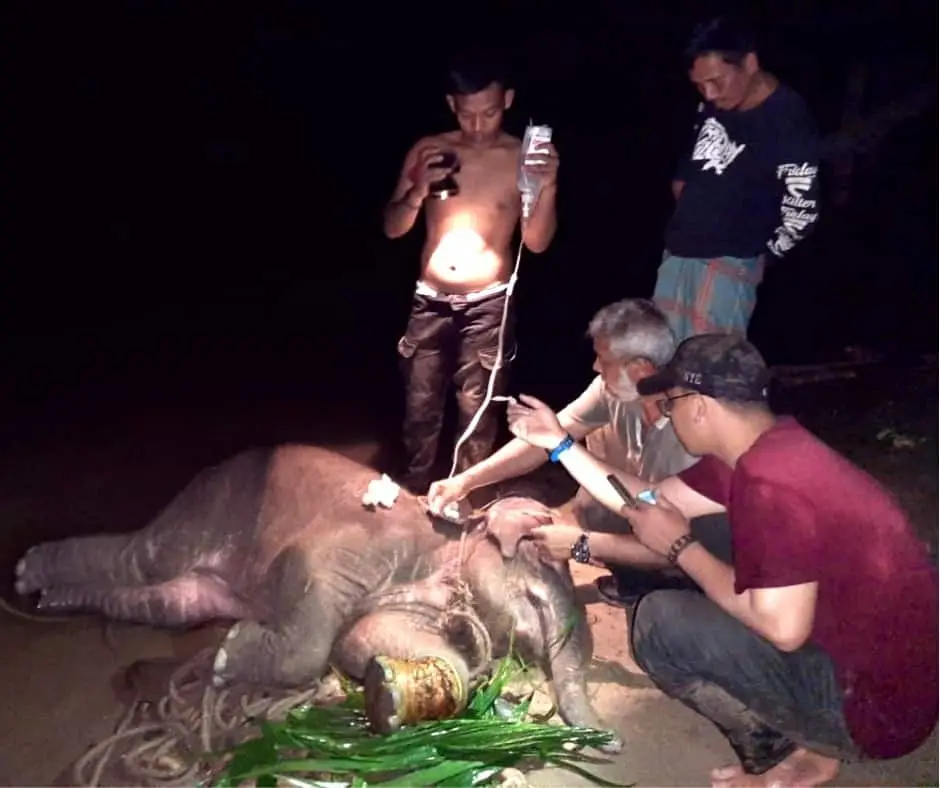
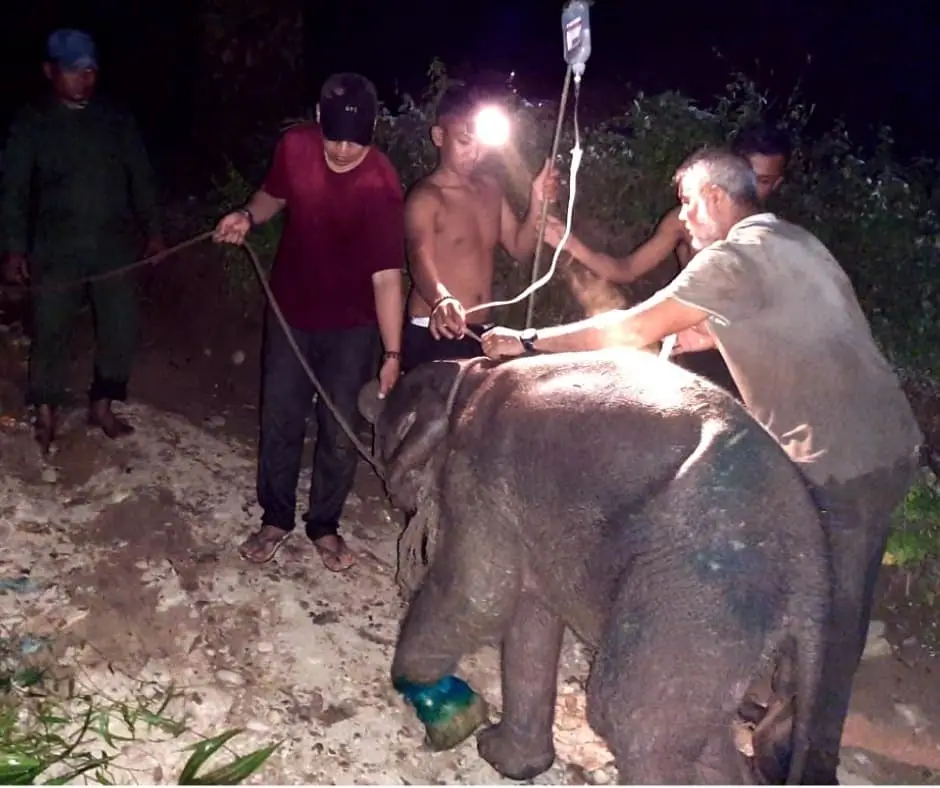
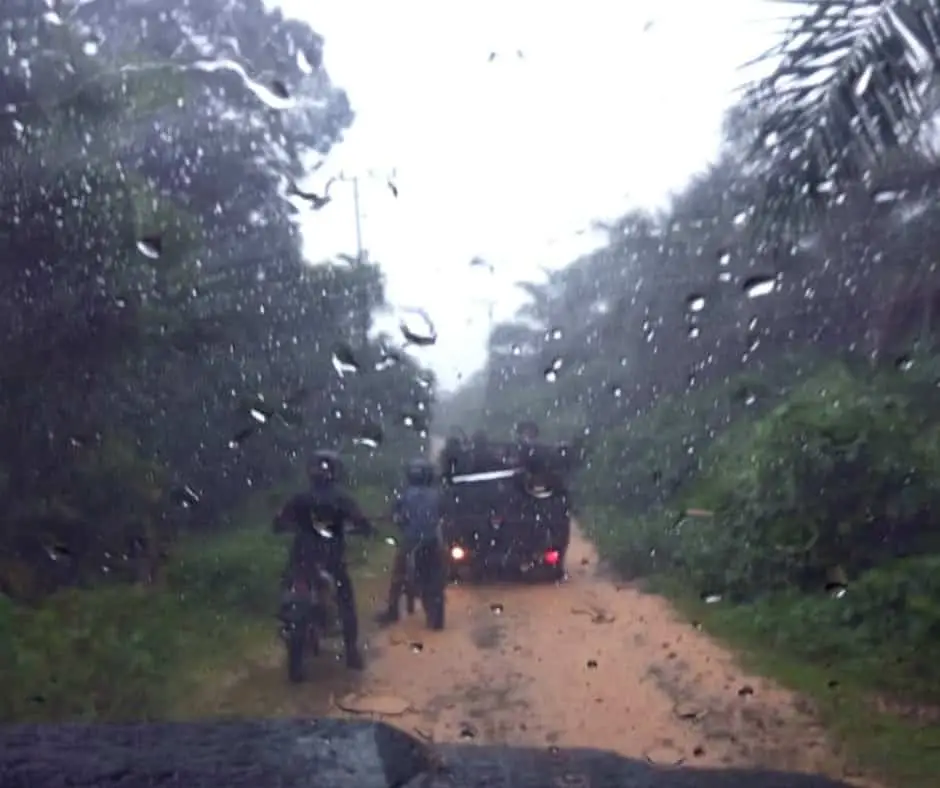
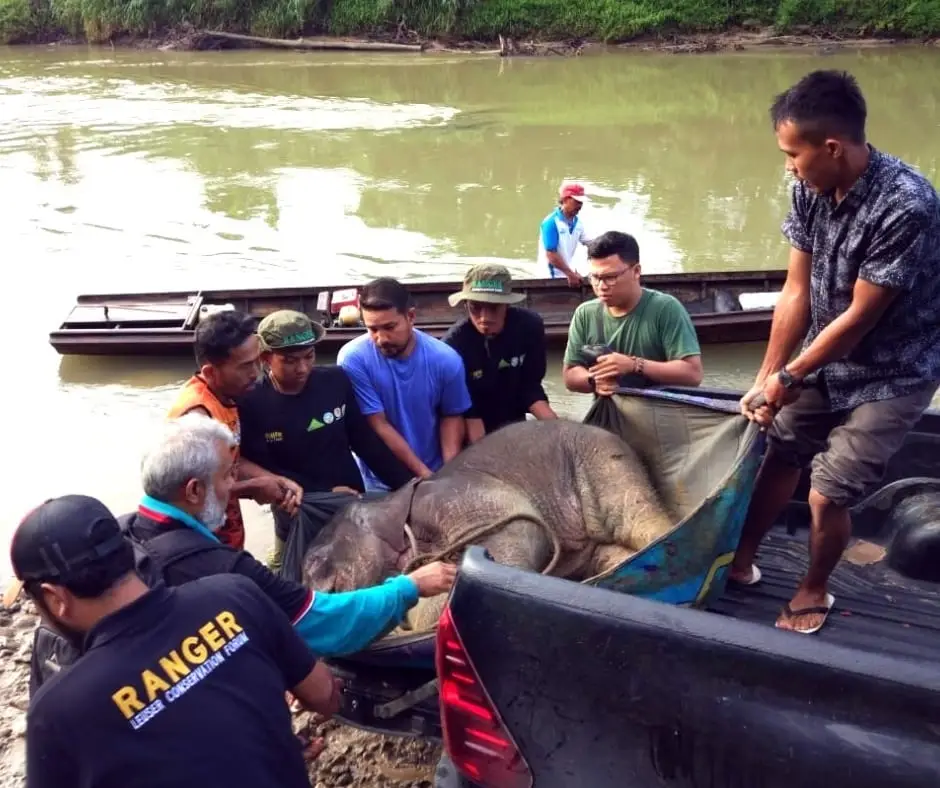
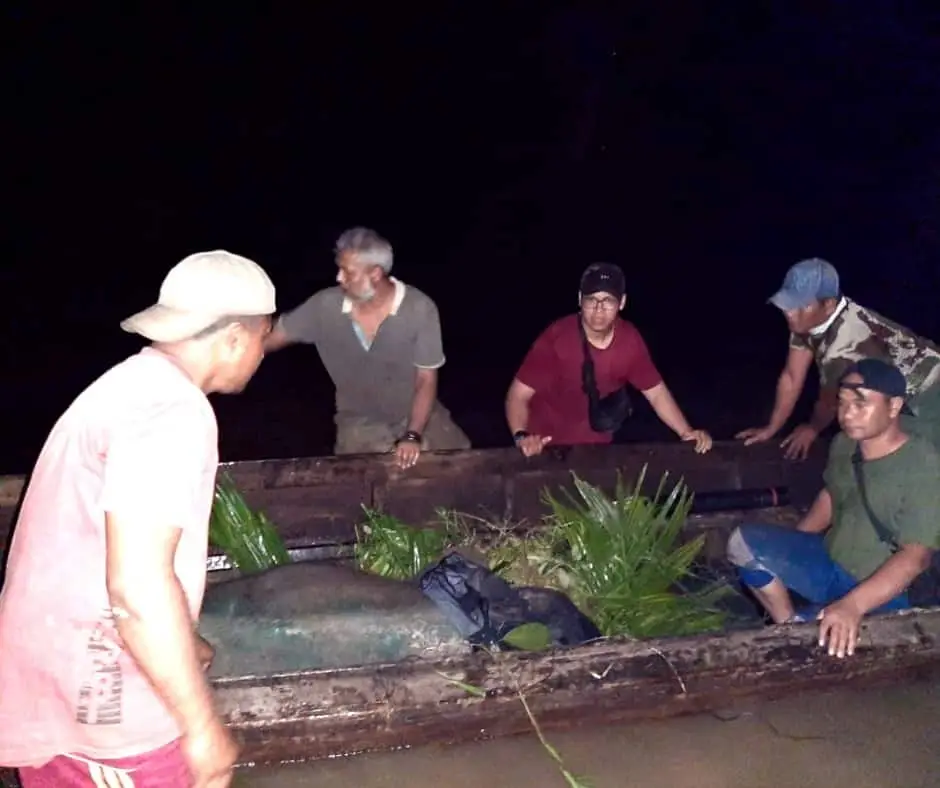
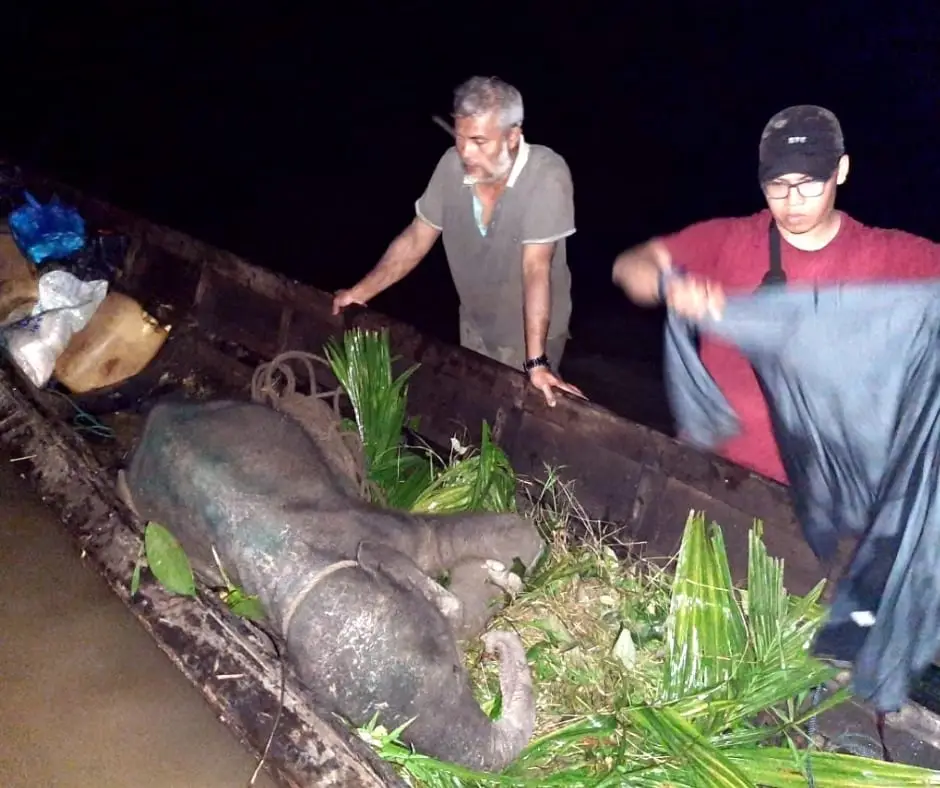
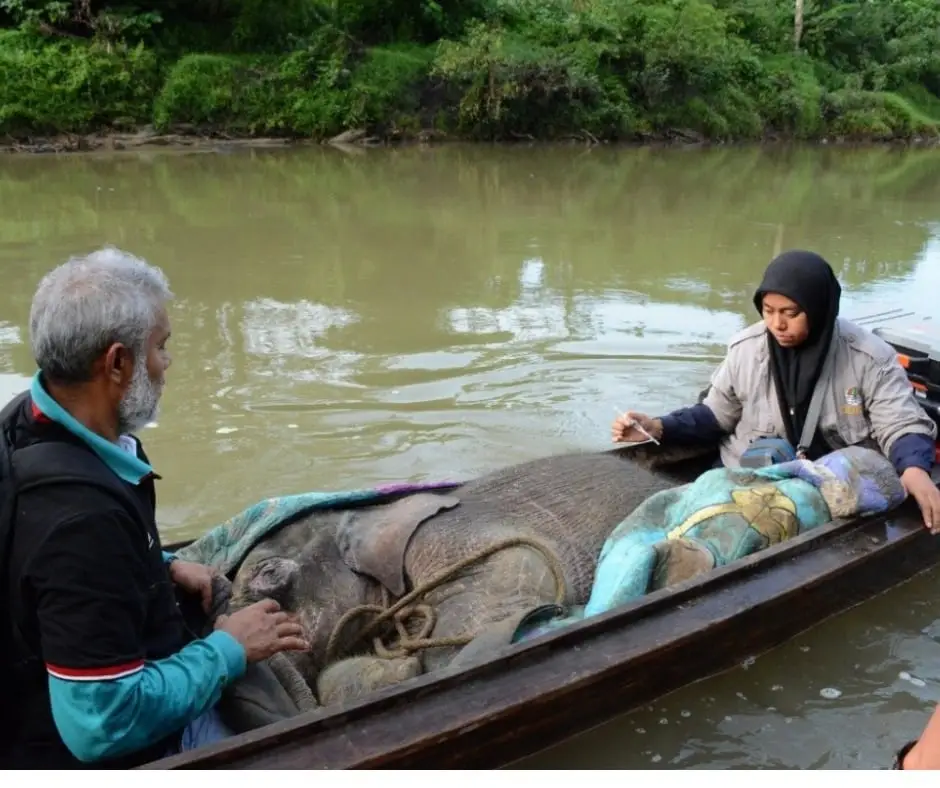
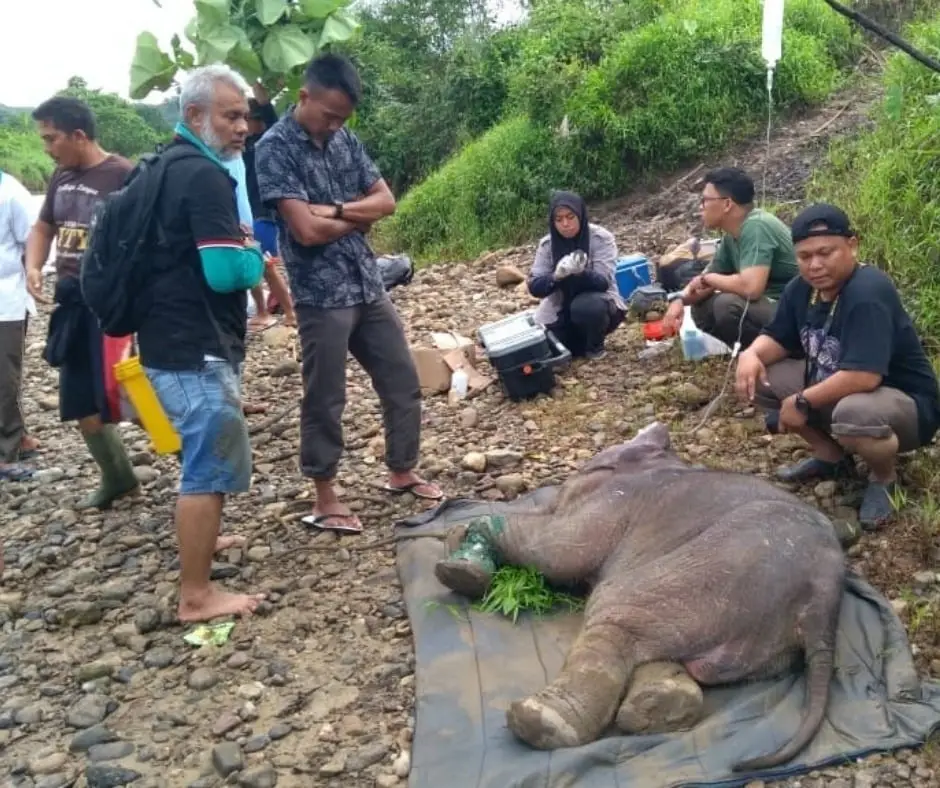
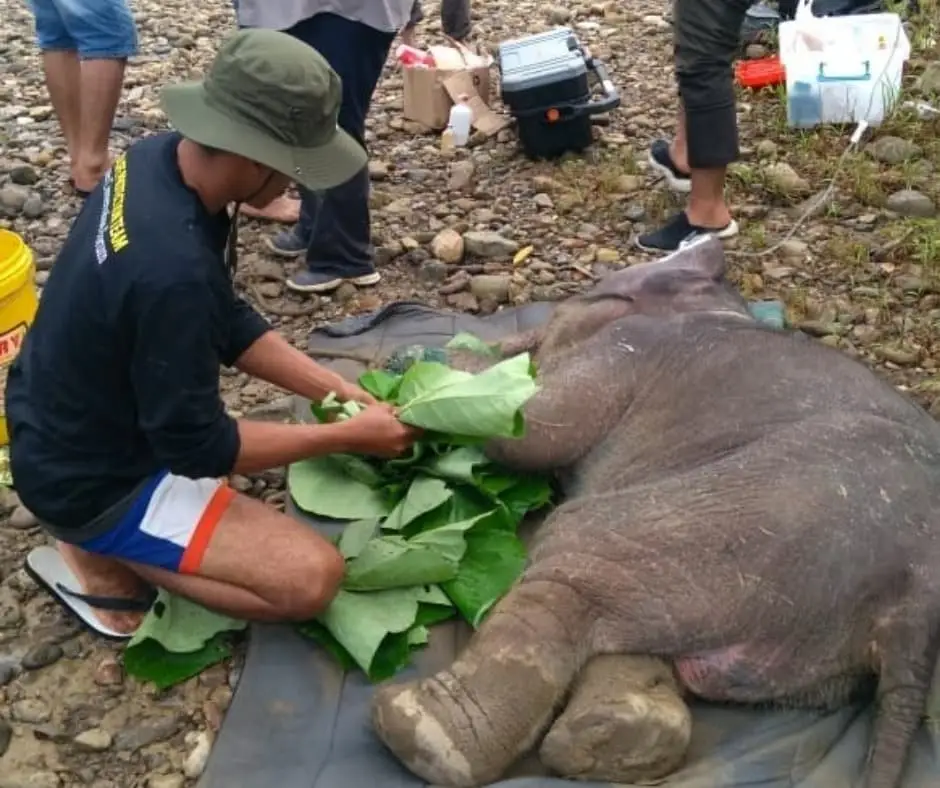
The recovery
With all our willpower, we try our best to ensure the rescue of the elephant.
The first weeks was a very difficult time for the elephant to live among humans. But at the very least, she feels comfortable. She is able to sleep surrounded by humans and happy to be fed milk.
Our staff is on standby monitoring 24 hours, 7 days a week. She is now recovering, socializing with other tame elephants at the camp, and has recently started eating grass as well.
The cute elephant is loved by the team and staff at the camp. It is unthinkable that anyone would injure her. The elephant is later named Salma (an acronym for “Save the Wildlife in Leuser and Aceh Communities” in Bahasa Indonesia).
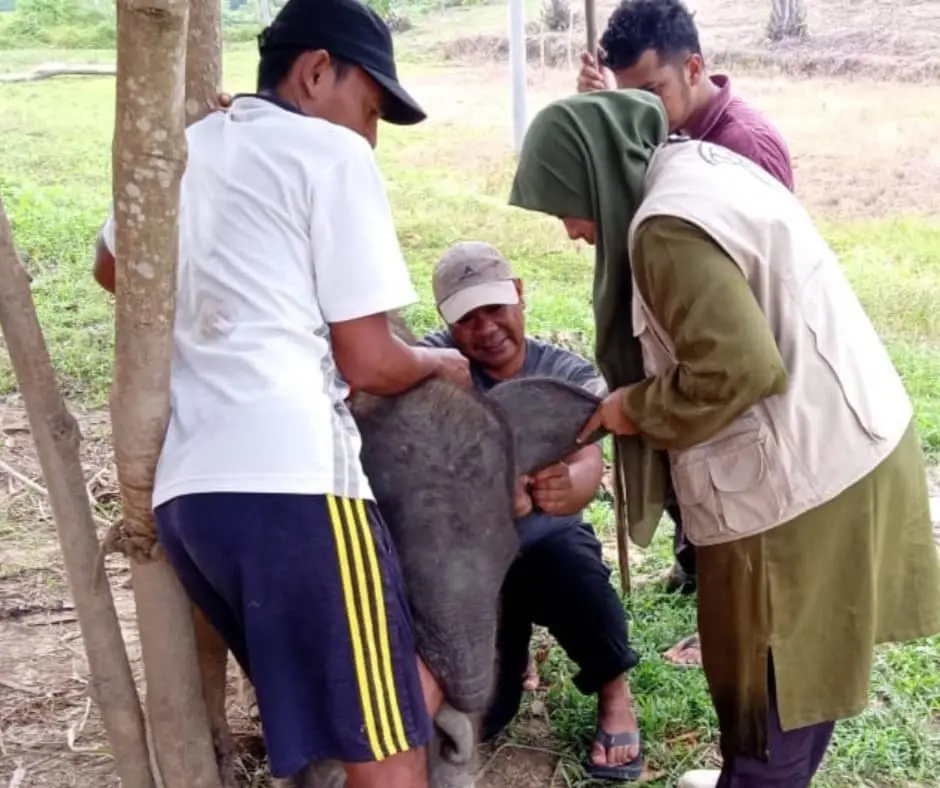
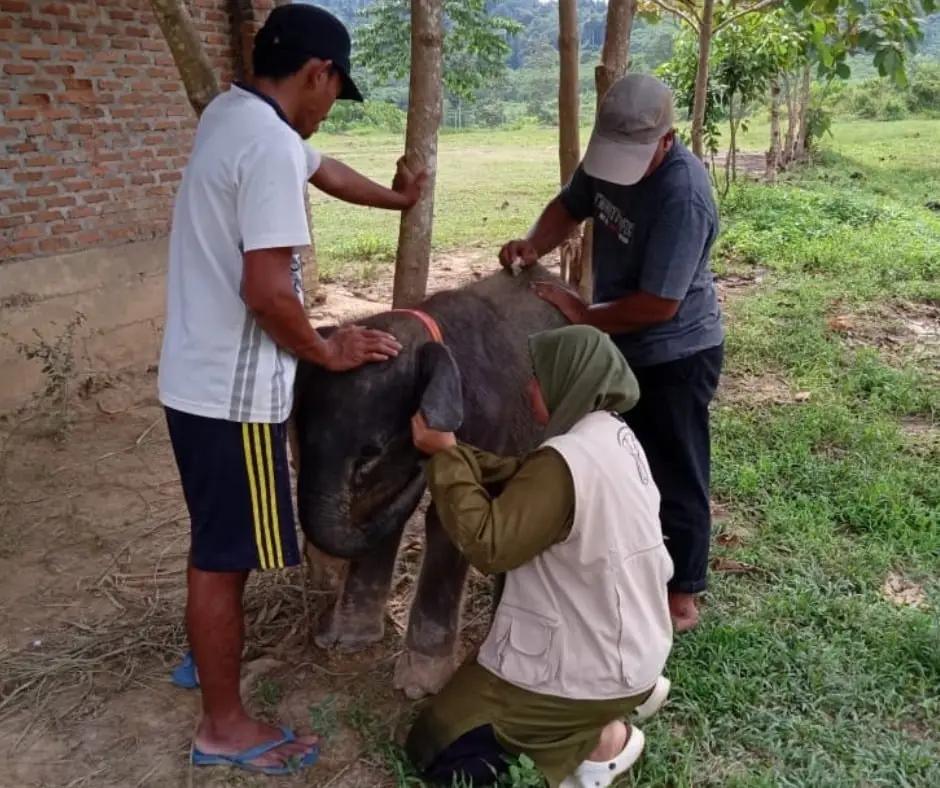
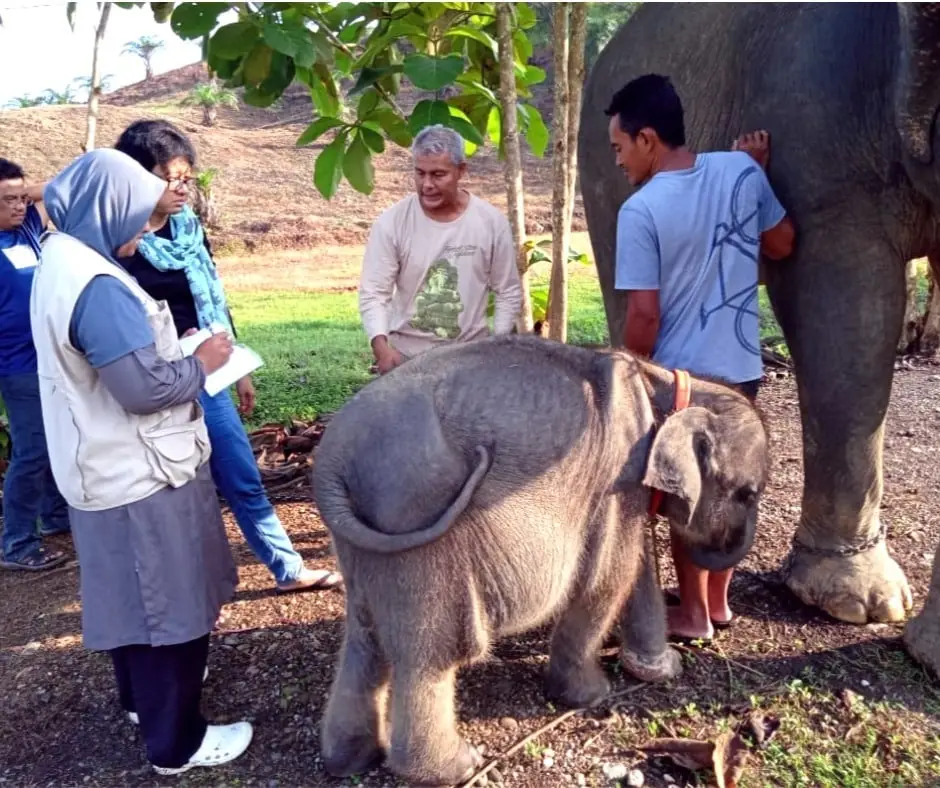
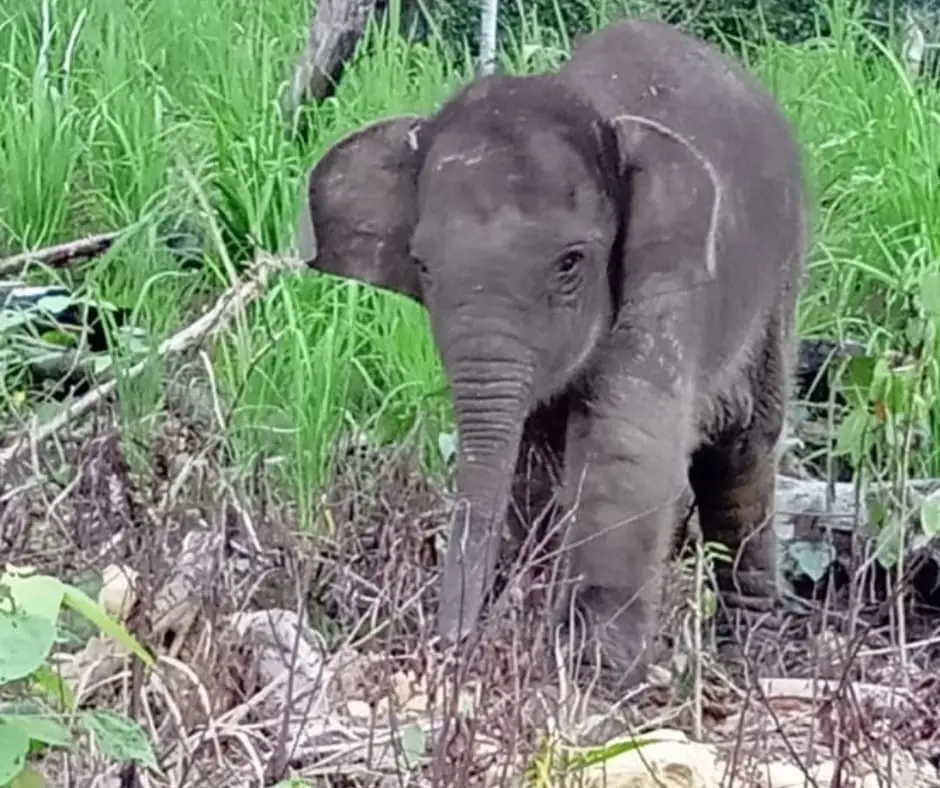
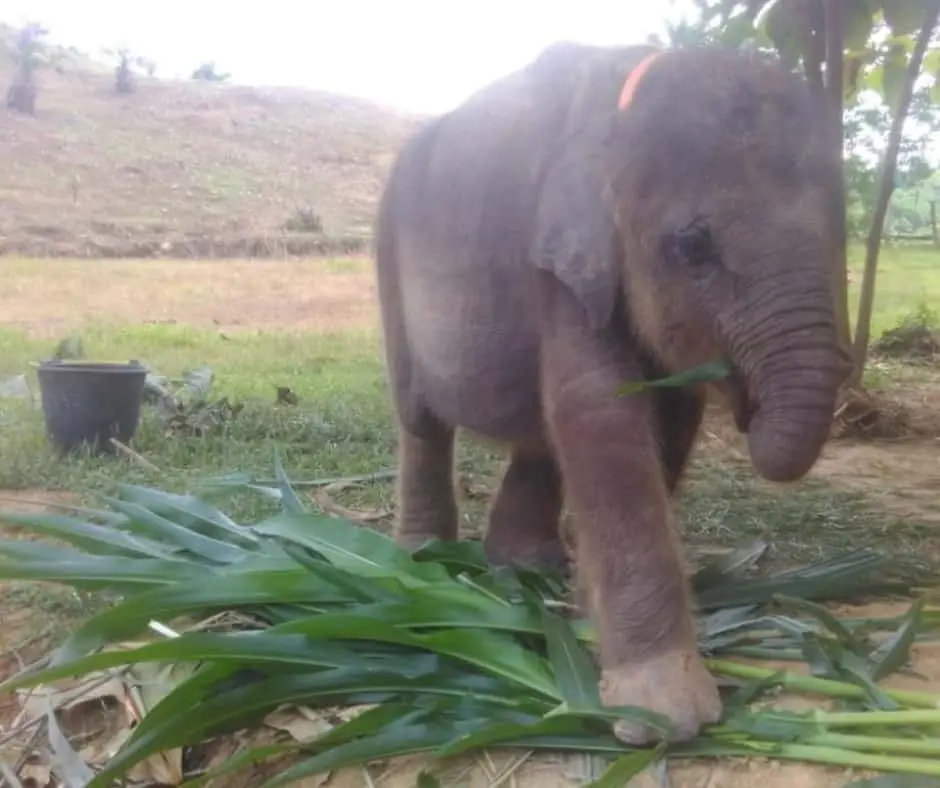
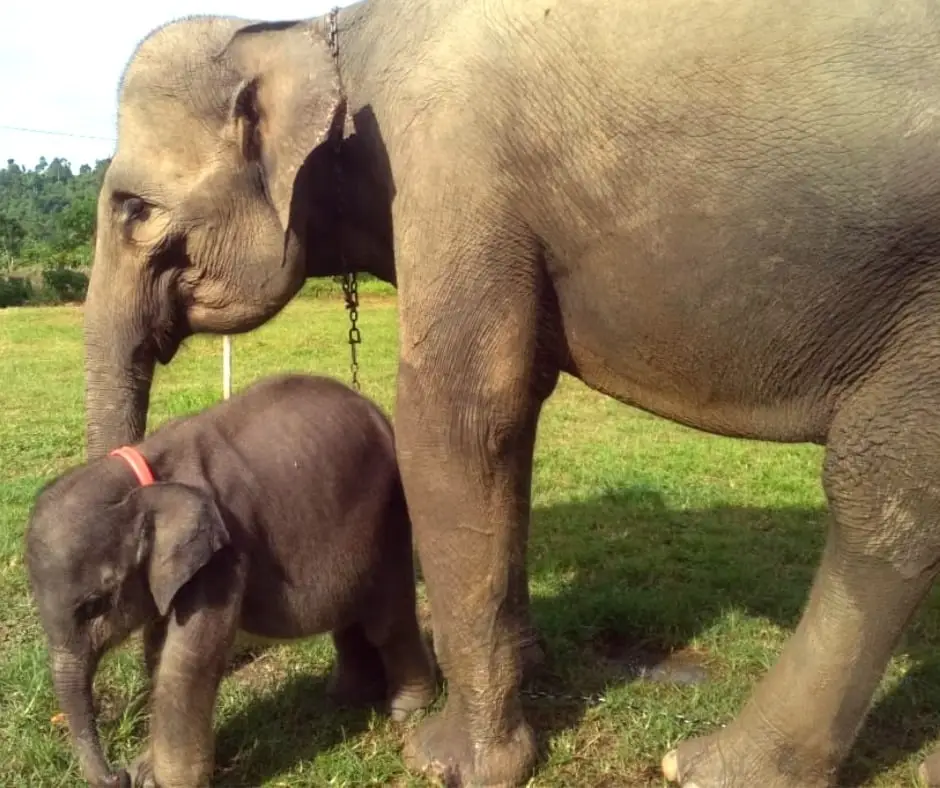
sumatra's wildlife needS A refuge
Help build a connection to the future for the wildlife of Leuser. Take a stand for their last refuge by rescuing this vanishing ecosystem, preventing the loss of biodiversity, and building resilience to fight the impacts of climate change.
ABOUT LEUSER CONSERVATION FORUM (FKL)
Leuser Conservation Forum (FKL) was founded in 2013 with a mission to help save the Leuser Ecosystem in Aceh and North Sumatra Provinces. The Leuser Ecosystem is a 2.6 million hectares expanse of forest rich in biodiversity. Today, FKL deploys 26 units of Wildlife Protection Team across the Leuser Ecosystem in Aceh specifically to treat, rescue elephants and other wildlife injured. With more than 200 people in the field, FKL’s protection unit is the biggest managed by a local NGO in Indonesia.
Copyright 2025 Saving Nature | fGreen Theme powered by WordPress
